Verbal Disputes in Oxford (Workshop Report #1)
I’m back from last week’s quick trip to Oxford for a workshop on Verbal Disputes, just in time to wrap up the last week of teaching in my two undergraduate units as the semester winds up here in Melbourne.
This was an excellent two-day workshop, capably organised by Trevor Teitel, and funded by the Ertegun Graduate Scholarship Programme for the Humanities. There was a lot to think about in the papers presented at the conference, and the informal discussions between talks. In another entry, I’ll comment on Cian Dorr’s talk “Pinning Down the Meanings of Quantifiers.” In this entry I’ll make some general remarks about the workshop and, in particular, about Amie Thomasson’s talk “Metaphysical Disputes and Metalinguistic Negotiation”.
A highlight of a workshop like this is meeting people, maintaining contact with those you’ve met before, and making new connections with new friends and colleagues. While there were lots of different views expressed at the conference, there was enough common ground—and more than enough good will and good humour—to have fruitful and productive conversations. This was a great workshop.
The workshop as a whole had seven presentations. The first day kicked off with a talk by Robbie Williams, on representation.
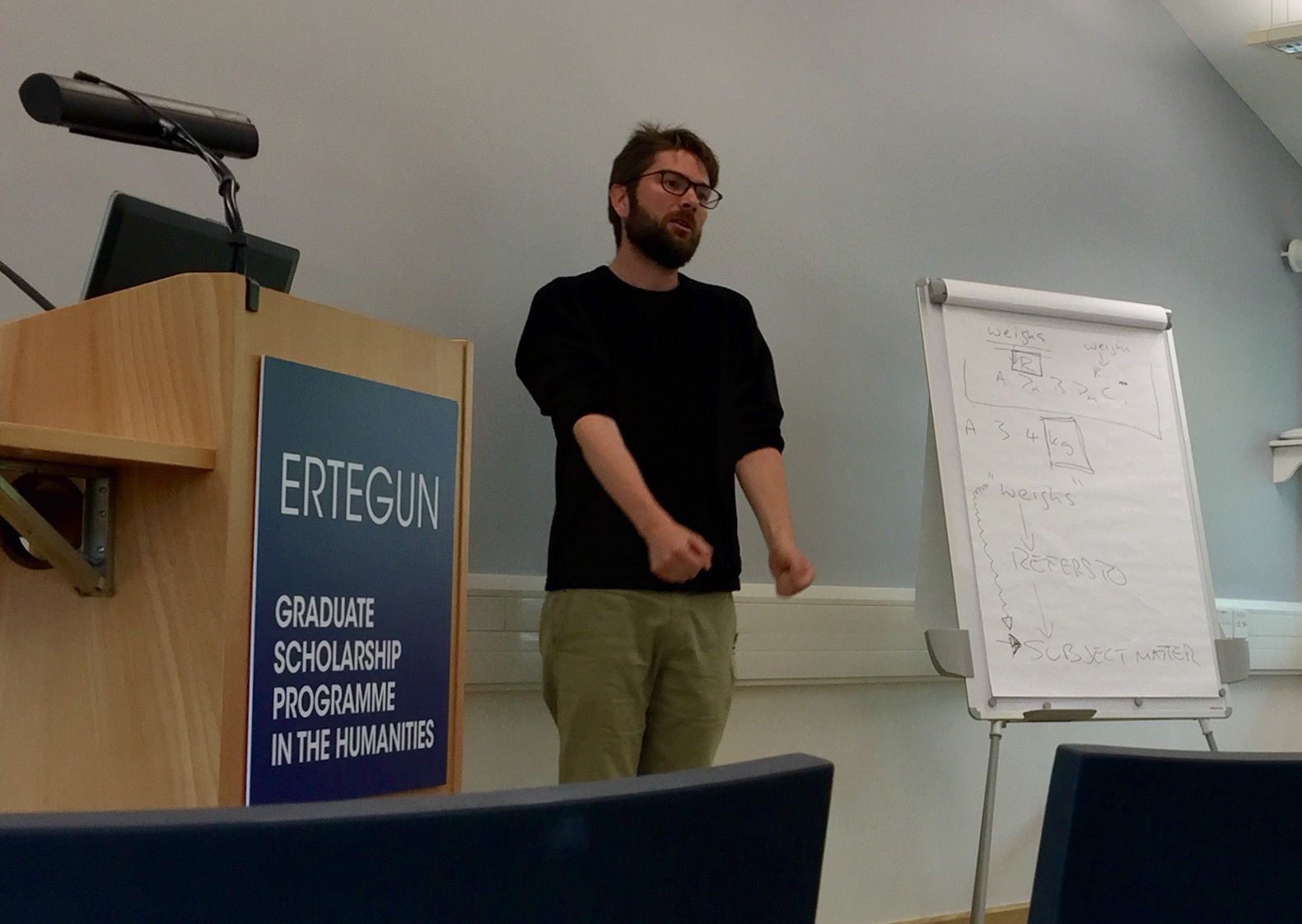
This was followed by Maya Eddon, on whether the parthood relation was perfectly natural or not. This was filled with elegant examples of cases where parthood fails to supervene on natural properties—unless parthood (or something like it) is admitted to the supervenience base.
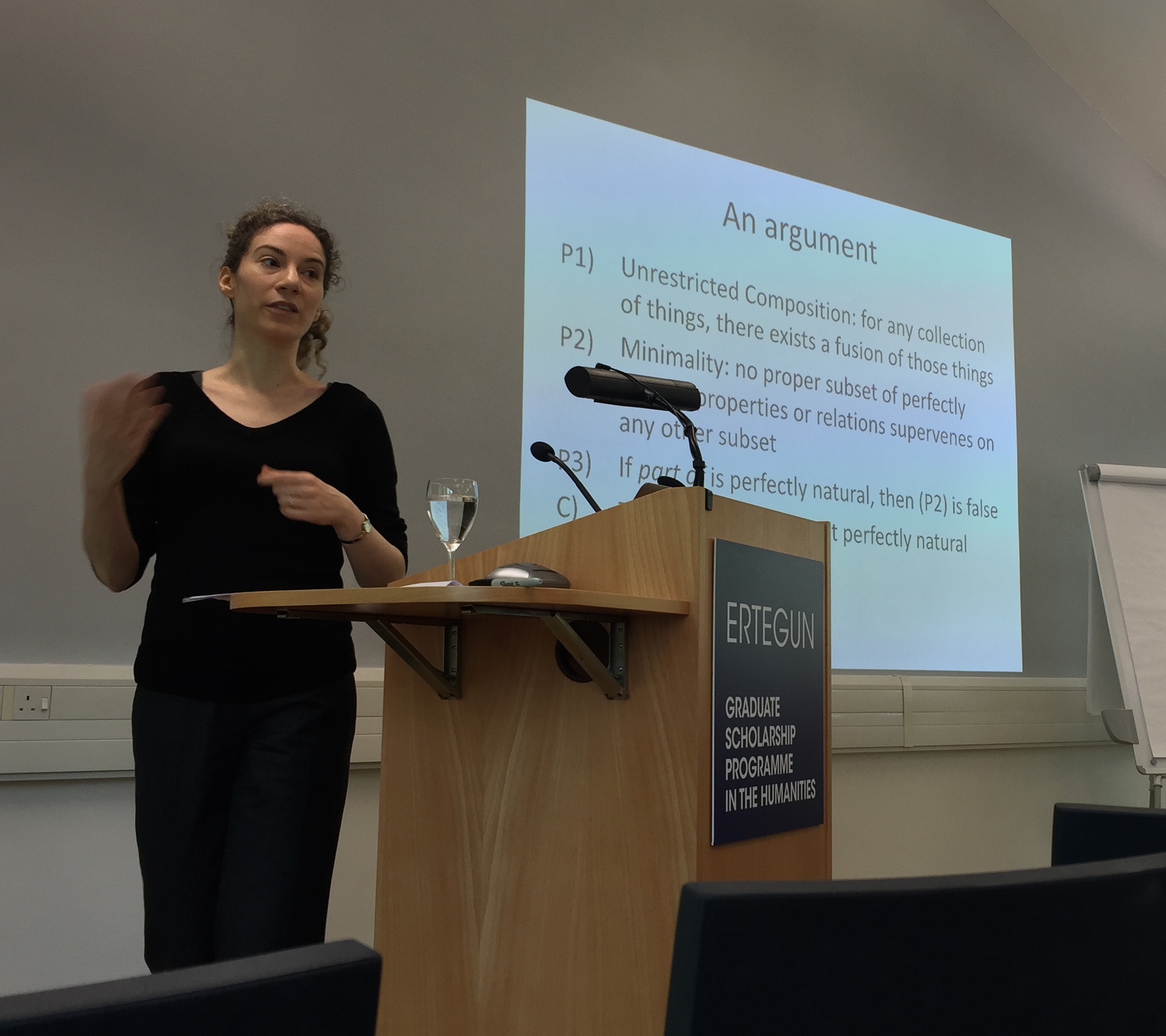
The first day wrapped up with a talk from Tim Williamson on graceful degradation and disputes over meanings of terms. For Williamson, we degrade our language if we avoid a disputed term, using in its place other terms already in the vocabulary. It’s a Good Thing if we can do this without catastrophic consequences.
In each case, the talks were clear, interesting, and not directly focussed on verbal disputes as such, but on issues in metaphysics and philosophy of language in and around that debate. I was reasonably jetlagged for the first day of the workshop (having landed in the UK the previous afternoon), so I don’t have many precise or detailed comments to make about those talks. Regardless, they were an enjoyable way to ease into the conference and to think about the themes under discussion.
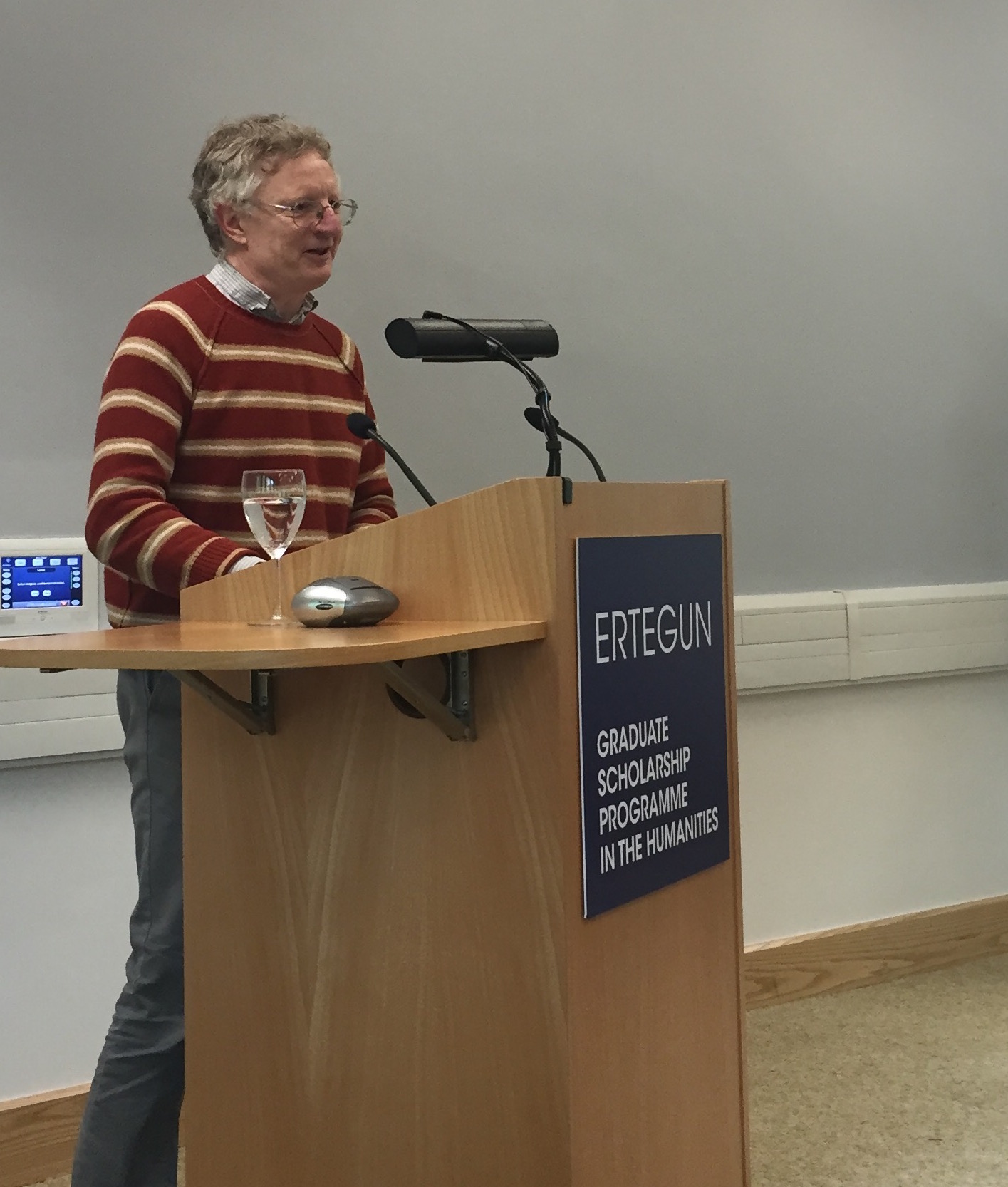
Day two started with my talk (which included an obligatory Led Zeppelin reference, in honour of Ahmet Ertegun’s connection with the band, having signed them to Atlantic Records). This effort was completely upstaged by Dave Chalmers in his talk, which was a recapitulation of the issues in his long and influential paper “Verbal Disputes.”
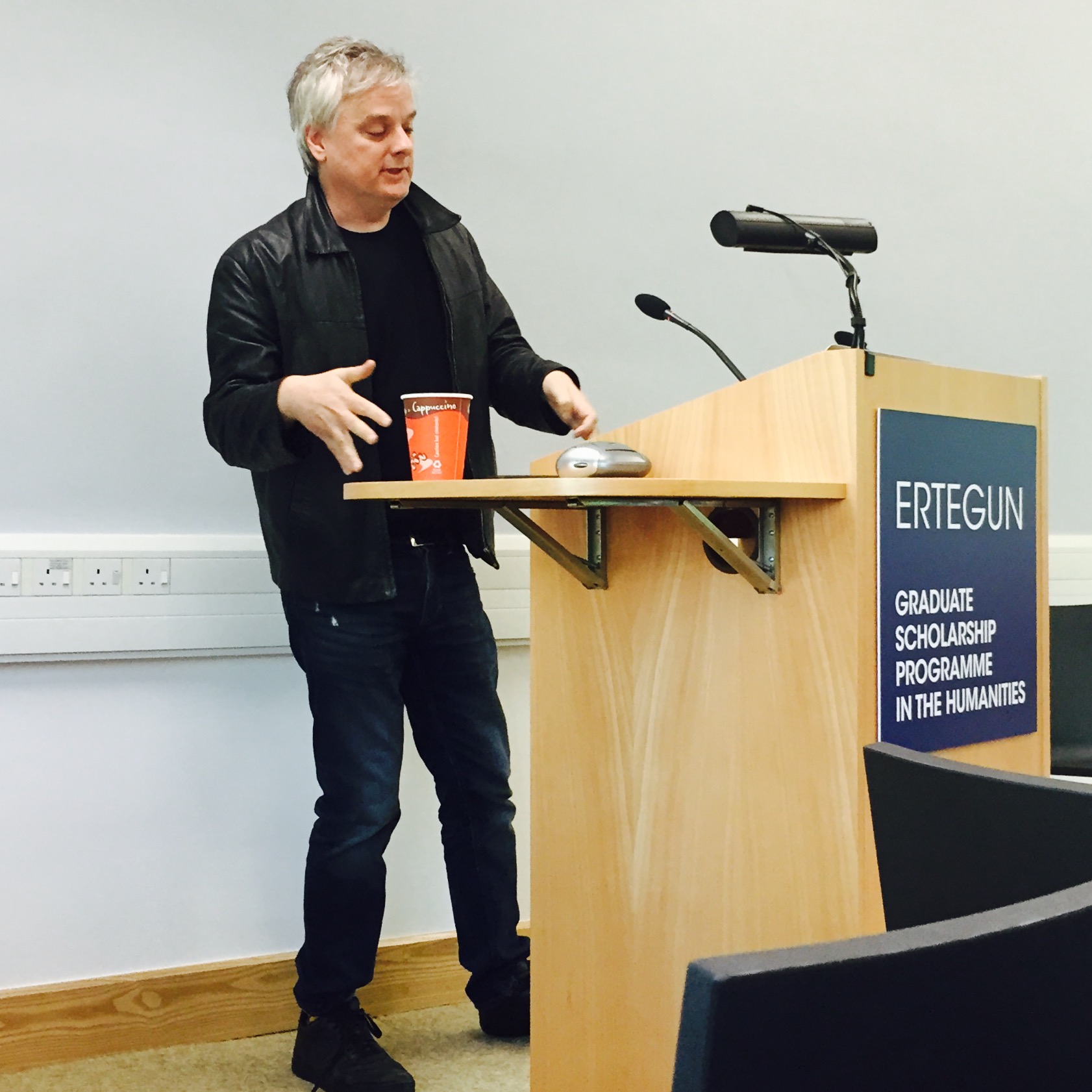
Thanks to Dave’s presentation, I now understand how it is that Led Zeppelin embrace semantic externalism and the possibility of radical skepticism in such insightful lines as “sometimes all of our thoughts are misgiven.” Thanks, Dave. I’ll never listen to ‘Stairway to Heaven’ in quite the same way, ever.
The highlights for me in the workshop, though, were the other two talks on the second day. Cian Dorr’s talk on the semantics of quantifiers (which I’ll discuss in another post) and Amie Thomasson’s, on metalinguistic negotiation. I’ll write about Cian’s work on quantifiers in another entry. Here, I’ll focus on Amie’s presentation.
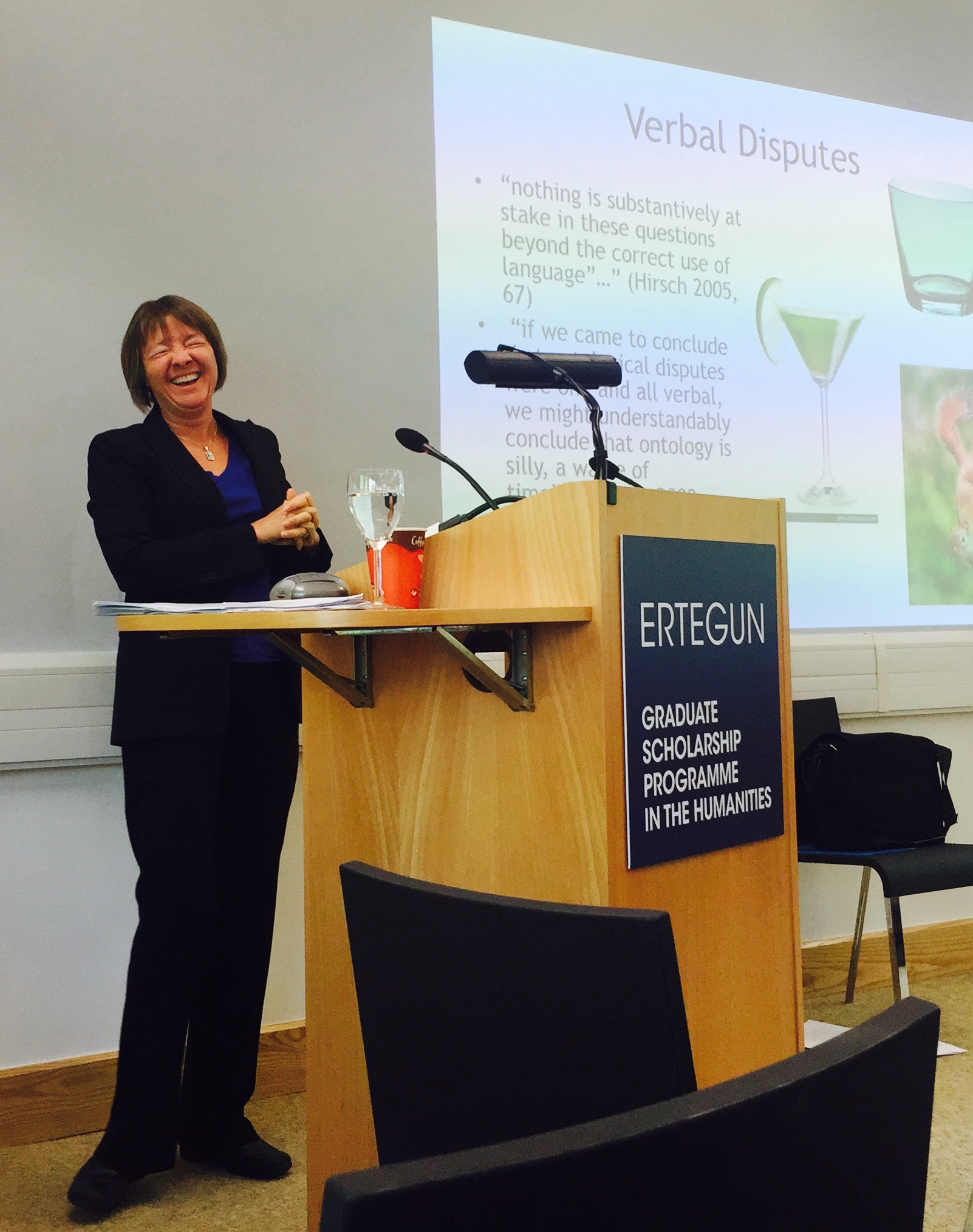
Amie’s talk posed a problem for two views: her own “easy ontology,” and Eli Hirsch’s “"quantifier variance”. According to Easy Ontology a metaphysical question like “there are numbers” is decided by the meanings of mathematical terms involved in the expressions, and nothing more than that. On a Quantifier Variance picture, a debate between a nominalist and a platonist about whether there really are numbers is resolved when you recognise that the proponents of the different metaphyiscal views are using quantifiers in different ways, and a charitable interpretation of both speakers would have them speaking past one another. When a platonist says there are numbers, and a nominalist denies it, they are speaking different languages, roughly speaking, at least. For Amie, both views are faced with a worry: they seem to make certain sorts of debate all too easy. The debate over whether a horse could count as an athlete is not the kind of thing that can be solved by a simple disambiguation, or by inspecting the clear and distinct semantics of the term “athlete” to see what is allowed and what is forbidden.
Imagine wading into the debate and saying this: “There are two things one could mean by ‘athlete,’ one of which includes horses and the other of which is restricted to sentient and sapient creatures. [Secretariat](http://en.wikipedia.org/wiki/Secretariat_(horse) is clearly an athlete1 and clearly not an athlete2, and that’s all there is to say.” While this might helpfully clarify the discussion, it wouldn’t stop the debate. What everyone wants to know is whether athlete1 or athlete2 (or any other precisification of the concept) is what we mean—or what we should mean—by “athlete.” After all, we might be deciding on whether a horse could be in the running for Athlete of the Year or not. The award was established as “Athlete of the Year,” not as “Athlete1 of the Year” or “Athlete2 of the Year.”
Or, take a more significant debate. We can argue as to whether a particular act counts as sexual harassment. It may clarify things to say that in one sense it counts as sexual harassment and in another sense it doesn’t. However, such a disambiguation doesn’t end discussion, because the term “sexual harassment” is used in many different contexts, and—in effect—replacing that term by two different terms “sexual harassment1” and “sexual harassment2” multiplies all of our problems, because now we need to go back to look at all of the other ways we used the term, to see how this new distinction bears on those discussions. That’s a significant part of the debate, and it’s nothing like a free and arbitrary choice.
Amie characterised this sort of debate as a kind of metalinguistic negotiation, using the terminology introduced by David Plunkett and Timothy Sundell in their paper “Disagreement and the Semantics of Normative and Evaluative Terms” Philosophers’ Imprint, 13 (2013) (see page 6). The core idea is that these sorts of debates are ways to settle how a term ought to be used by way of a first order debate about matters involving that term. Given that we want to continue to use the one term (“athlete”, “sexual harassment”, etc.) trying to come to some kind of agreement over whether this horse counts as an athlete or that act counts as sexual harassment is a way to come to grips with how to use the vocabulary from now on. Or so the account goes. The result is that neither an easy ontology view nor a quantifier variance view is committed to the claim that what might be thought of as a verbal dispute (over whether there are numbers or not) is at all straightforward, because it’s actually a debate over how are are to go on to use our vocabulary, and that vocabulary is a complex network of connections.
So far, so good. But I’m curious about how such a metalinguistic negotiation might work, and one other event in Oxford, Rae Langton’s Locke Lectures gives me an idea. Here is a conjecture. The process of semantic coordination involved in a debate over a contested term proceeds by way of accommodation. In particular, if one party in a debate offers an argument or a reason for a conclusion (she’s an athlete, because …; that’s harassment, since …), then in the conversational context, the premises are being offered as a reason for the conclusion. When I assert: C, since P, I’m not only asserting C and asserting P, but I’m presenting P as a reason for C. The explicit context of what I’ve asserted is P and C, but I’ve also implicitly made the conditional claim “if P then C” or “P is a reason for C”. If you don’t object, we accommodate for this in the common ground of the discussion—we grant that this is an acceptable transition. If you do object to my claim, you could either object to the explicit content of what I’ve said (you could disagree with C or with P), or you could take issue with the connection.
When we have a debate over the disputed vocabulary, we often find ourselves with a whole pile of reasons out on the table. Some are granted and others are contested. At the end of the process, we may not find agreement, but the aim is to sort out what connections involving our concepts and our claims are to be endorsed and what are to be rejected. As to why this might be an appropriate way to conduct a debate over disputed conecept, there’s much more to be said. But I think that this is a fruitful start, and it’s a connection I hope to explore more.
